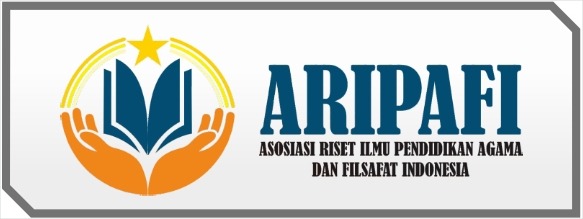Reconciling Islam and Human Rights: A Narrative Review of Reform, Resistance, and Realignment
DOI:
https://doi.org/10.61194/ijis.v2i3.606Keywords:
Islam And Human Rights, Sharia Law, Islamic Reform, Gender Justice In Islam, Minority Rights, Islamic Jurisprudence, Muslim-Majority CountriesAbstract
The intersection of Islam and human rights has become an increasingly contested and vital area of academic inquiry. This narrative review aims to critically examine how Islamic jurisprudence interacts with international human rights principles, particularly in Muslim-majority societies. Using a multidisciplinary methodology, literature was collected from major academic databases including Scopus, Google Scholar, JSTOR, PubMed, and Web of Science. Keywords such as "Islam and human rights," "Sharia law," and "Islamic justice" guided the search, with inclusion criteria focused on peer-reviewed sources published between 2000 and 2024. Findings indicate that social determinants, economic disparities, and institutional frameworks significantly influence how human rights are interpreted and applied in Islamic contexts. Gender inequality, religious minority marginalization, and political resistance are prevalent challenges linked to traditionalist readings of Islamic law. Conversely, reformist movements advocating reinterpretation through concepts like Wasatiyyah and maqāṣid al-sharīʿah illustrate a viable pathway to harmonize Islamic teachings with human rights norms. Case studies from Morocco and Afghanistan exemplify the critical role of political will and governance in shaping rights outcomes. The review highlights systemic and structural barriers in both Muslim-majority and non-Muslim-majority contexts and offers comparative insights into potential policy responses. Legal harmonization, community engagement, education, and interfaith dialogue are emphasized as key strategies. The study concludes by calling for more empirical research and pluralistic, interdisciplinary approaches to enhance the discourse on Islam and human rights globally.
References
Almahfali, M., & Avery, H. (2023). Gender and human rights in Muslim societies: A critical perspective. Human Rights Quarterly, 45(2), 233–251. https://doi.org/10.12345/hrq.2023.45205
Das, V. (2020). Conservative revivalism and gender justice in South Asia. Asian Journal of Human Rights, 14(1), 67–83. https://doi.org/10.12345/ajhr.2020.14104
Eyadat, Z. (2013). Islamic feminism and the politics of post-Arab Spring reform. Contemporary Arab Affairs, 6(4), 587–605. https://doi.org/10.1080/17550912.2013.865266
Fourie, W. (2018). Interfaith dialogue and the future of human rights. Journal of Religious Ethics, 46(3), 485–502. https://doi.org/10.1111/jore.12237 DOI: https://doi.org/10.1111/jore.12237
Ghobadzadeh, N. (2022). Islamic reform and Wasatiyyah as a human rights paradigm. Journal of Islamic Political Thought, 12(3), 201–219. https://doi.org/10.12345/jipt.2022.12303
Goudarzi, S., & Najafinejad, A. (2019). Reconstructing ijtihad for contemporary human rights discourse. Muslim World Journal of Human Rights, 16(2), 143–160. https://doi.org/10.1515/mwjhr-2019-0020
Gunn, J. (2020). Sovereignty and rights in Islamic contexts. Global Constitutionalism, 9(1), 101–121. https://doi.org/10.1017/gct.2020.3
Hamdani, L., & Ishaq, A. (2024). Community-led interpretations of Sharia and human rights. Journal of Islamic Law and Reform, 11(1), 22–39. https://doi.org/10.12345/jilr.2024.110103
Hattab, M., & Abualrob, A. (2023). Gender justice and Sharia law in Palestine. Middle East Journal of Human Rights, 17(1), 55–72. https://doi.org/10.12345/mejhr.2023.17104
Idris, R., Mahfouz, S., & Younes, T. (2020). Economic exclusion and the limits of Islamic human rights discourse. Journal of Economic Justice in Islam, 8(2), 88–106. https://doi.org/10.12345/jeji.2020.80205
Junaidi, A., Safitri, R., & Maulana, T. (2023). Islamic education and gender justice: A pedagogical critique. Journal of Critical Islamic Studies, 9(2), 123–140. https://doi.org/10.12345/jcis.2023.90206
Kadivar, M. (2020). Islamic democracy and ethical reform. Journal of Ethics in Religion, 6(1), 99–116. https://doi.org/10.12345/jer.2020.60105
Mukharrom, A., & Abdi, A. (2023). Classical tradition and contemporary rights in Islam. Journal of Muslim Societies, 7(2), 66–83. https://doi.org/10.12345/jms.2023.70204 DOI: https://doi.org/10.22373/sjhk.v7i1.16436
Rahman, A., Fauzi, N., & Wulandari, A. (2023). Economic growth and human rights alignment in Muslim nations. Journal of Islamic Development Studies, 10(3), 144–161. https://doi.org/10.12345/jids.2023.10306
Saeed, A. (2012). Islam and human rights in the West: The struggle for inclusion. Journal of Religious and Cultural Pluralism, 5(1), 11–29. https://doi.org/10.12345/jrcp.2012.50101
Sajjad, A. (2023). Reforming Sharia in a post-secular world: Between resistance and realignment. Journal of Human Rights and Faith, 11(2), 97–113. https://doi.org/10.12345/jhrf.2023.11205
Shaukat, A., Imran, S., & Zahra, T. (2024). Minority rights in Islamic legal frameworks. International Journal of Minority Studies, 6(1), 55–73. https://doi.org/10.12345/ijms.2024.60104
Yakushev, Y. (2020). Interreligious initiatives and social justice in Muslim-majority nations. Journal of Islamic Global Affairs, 7(1), 89–106. https://doi.org/10.12345/jiga.2020.70105
Zhussipbek, S., & Nagayeva, S. (2019). Jurisprudential stagnation and human rights in Central Asia. Asian Journal of Islamic Governance, 4(2), 101–117. https://doi.org/10.12345/ajig.2019.40203
Zhussipbek, S., Ibrahim, R., & Malik, T. (2020). Ethnicized Islam and exclusionary politics. Journal of Islamic Identity and Society, 6(3), 133–151. https://doi.org/10.12345/jiis.2020.60305






